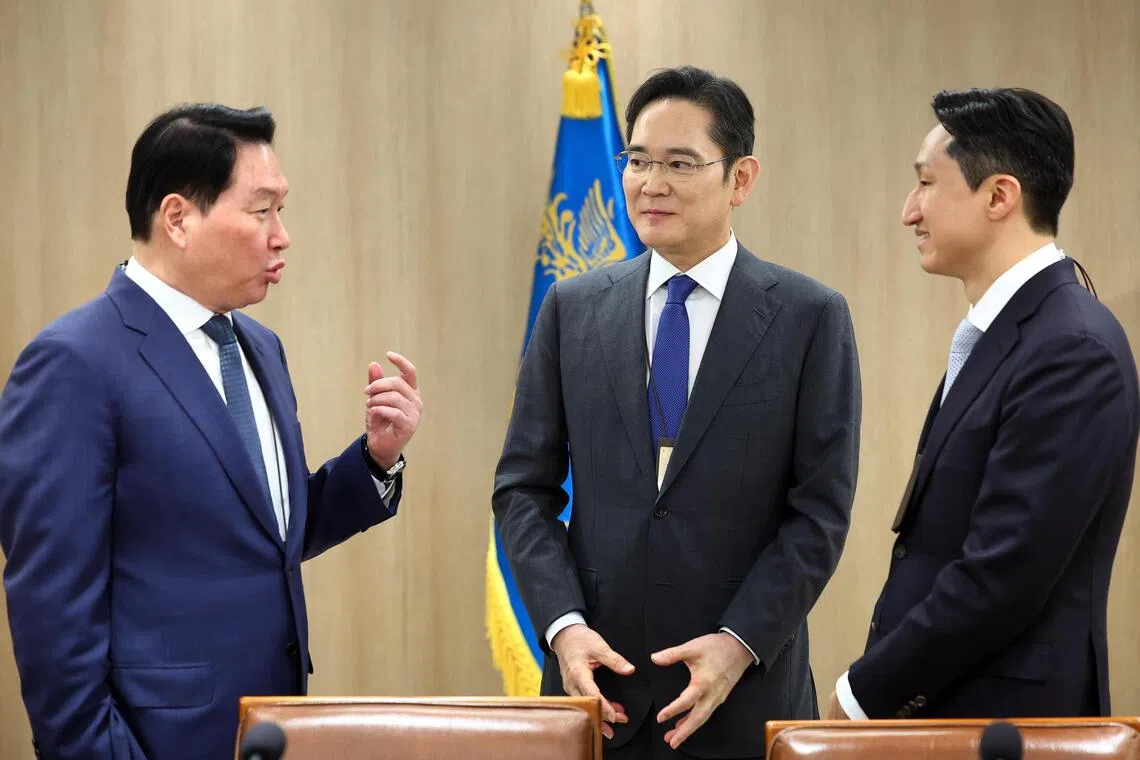South Korean conglomerates pledge $714 billion domestic investment after US trade deal
Sign up now: Get ST's newsletters delivered to your inbox

(From left) SK Group chairman Chey Tae-won, Samsung Electronics chairman Lee Jae Yong and Hyundai Motor executive chairman Chung Eui-sun.
PHOTO: EPA
Follow topic:
SEOUL - Samsung Group and SK Group were among four of South Korea’s biggest companies that pledged to invest about US$550 billion (S$714 billion) in the country after meeting with President Lee Jae Myung, who is seeking to shore up the economy following a trade deal with the United States.
Samsung’s affiliates will invest 450 trillion won (S$401.4 billion) in the country, including in artificial intelligence infrastructure and research and development, over the next five years, according to a statement from Samsung Electronics. Hyundai Motor Group pledged 125.2 trillion won over the same period.
SK Group reiterated plans to invest 128 trillion won in AI, chips, energy and biotechnology through 2028. LG Group reaffirmed investment plans of 100 trillion won, mostly on materials, parts and equipment, between 2024 and 2028.
The announcements came after a trade deal with the US sparked concerns over low domestic investment and the nation’s currency. South Korea previously agreed to channel US$350 billion into strategic US industries as part of the trade agreement.
Mr Lee met with business leaders including Samsung’s Jay Y. Lee, Hyundai Motor’s Euisun Chung, LG Group’s Koo Kwang-mo and SK Group’s Chey Tae-won.
The South Korean leader urged them to expand domestic investment and offered government assistance.
He suggested that Seoul could adopt new forms of support, such as purchasing subordinated bonds issued by companies or assuming first-loss positions. BLOOMBERG

